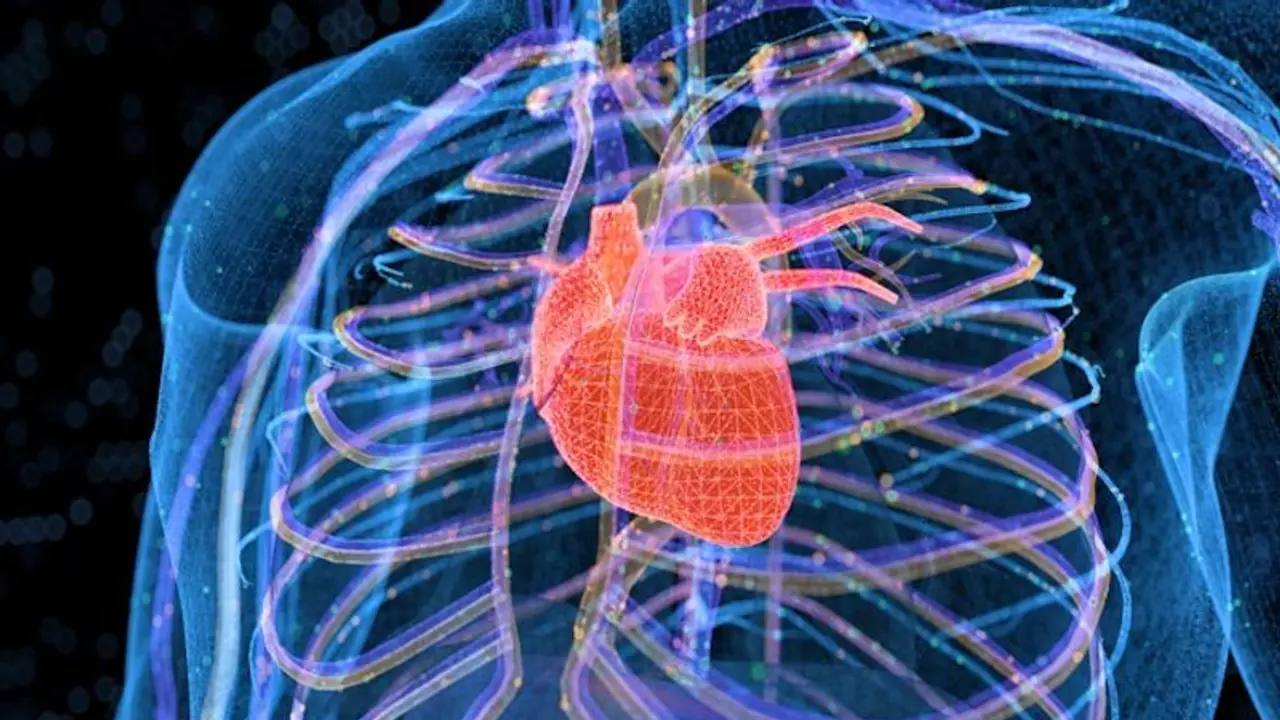"Compared to the 2009 flu pandemic, COVID has resulted in more severe and long-term cardiovascular disease," said Arutha Kulasinghe of the Australia's University of Queensland. "We couldn't find viral particles in the cardiac tissues of COVID-19 patients during our study; however, we did find tissue changes associated with DNA damage and repair," Kulasinghe explained.
Researchers have discovered how COVID-19 infection damages heart tissue, paving the way for more effective treatments. The study on a small group of people discovered that COVID-19 damaged DNA in heart tissue, which was not found in influenza samples.

While COVID-19 and influenza are both severe respiratory viruses, they affect cardiac tissue very differently, according to the researchers.
"In comparison to the 2009 flu pandemic, COVID has resulted in more severe and long-term cardiovascular disease," said Arutha Kulasinghe of the University of Queensland in Australia.
"We couldn't detect viral particles in the cardiac tissues of COVID-19 patients during our study, but we did find tissue changes associated with DNA damage and repair," Kulasinghe explained.
As DNA damage and repair mechanisms are linked to chronic diseases such as diabetes, cancer, atherosclerosis, and neurodegenerative disorders, the researchers believe it is critical to understand why this is happening in COVID-19 patients.
As obtaining heart biopsy samples is invasive, data on the impact of COVID-19 on the heart has previously been limited to blood biomarkers and physiological measurements.
The study, which was recently published in the journal Immunology, used actual cardiac tissues collected during autopsies from seven COVID-19 patients from Brazil, two people who died from influenza, and six control patients.
The findings revealed how COVID-19 affected the body compared to other respiratory viruses.
"When we examined the influenza cardiac tissue samples, we discovered that it caused excessive inflammation," said Professor John Fraser, who founded the international COVID-19 Critical Care Consortium.
"However, we discovered that COVID-19 attacked the heart's DNA, most likely directly and not just a knock-on of inflammation," Fraser explained.
The study emphasises that the two viruses affect cardiac tissue very differently, which the researchers hope to learn more about in larger cohort studies.
"We have categorically demonstrated that COVID is not just like the flu," Fraser said.
"This study helps us understand how COVID-19 affects that heart, and that is the first step in determining what treatments might be most effective in repairing that heart," he added.
(With inputs from PTI)
Also Read: Alzheimer's disease risk is 80% more in older persons with COVID-19, according to a study
Also Read: 'Misleading': Govt official rubbishes Lancet report on unapproved antibiotic use in India in 2019
Also Read: New Zealand drops mask, vaccine mandate; removes most remaining Covid-19 restrictions
